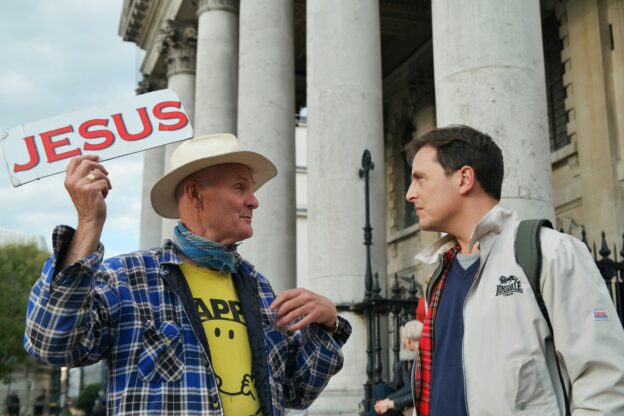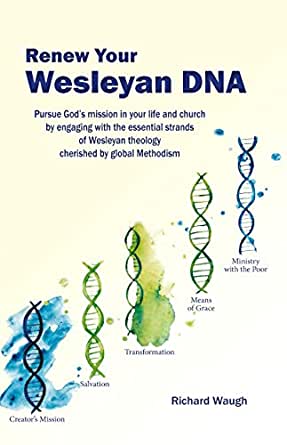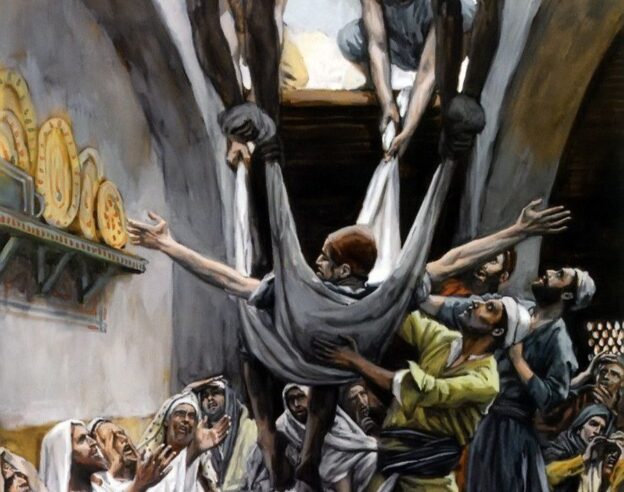In a previous blog, we considered the nature of grace. Grace was a core issue in Wesley’s theology. He sounded the note of grace strongly in opposition to a doctrine of predestination. The doctrine of predestination has as its center an understanding of grace being limited. For Wesley, grace is not limited – it is universal. It is “free in all, and free for all.” It is free to all in the sense that it is given without price, and flows from the mercy of God.
That doesn’t mean that all persons receive this grace, or that they deliberately appropriate it, or respond to it for their salvation. They don’t. That is the reason Wesley sounded so clearly the note of repentance. God’s prevenient grace works in our lives to lead us to repentance which is a necessary response for salvation. That doesn’t mean that all persons receive this grace, or that they deliberately appropriate it, or respond to it for their salvation. They don’t.
God’s grace is universal, but a person may suppress or ignore this grace. If so, scripture warns that we may experience hardness of heart, so that the stirrings of the Spirit within will go unheeded.
This raises one of the thorniest issues in theology today- the issue of universal grace and universal salvation. In addressing the issue, the uniqueness of Christ as God’s source of salvation is under attack. Our Biblical, orthodox, Wesleyan Christology is labeled exclusivistic.
Because historical relativity and religious pluralism are so pervasive, many are challenging the place of Christ as the goal of things. Is Christ really that final, definitive and normative? The uniqueness of Christ is also diminished by those in whose thinking and understanding Christians may hold to Christ as their unique Savior without necessarily claiming as much for others. Christ may be my personal Lord and Savior, but this does not mean that he is the only Savior or the only Lord for all other religions. To hold Christ as the final and normative Word of God is branded as “theological fundamentalism.” Jesus is one of the ways in which God meets the world of human experience, but it is arrogant bigotry to claim that Jesus is God’s unique way of dealing with the salvation of the world.
This kind of thinking primarily makes Christ one of many “ways” to salvation. There is an equally forceful theological voice which does not diminish the uniqueness of Christ as Saviour. They joyfully and confidently contend that grace will work universally, and eventually all will come into God’s kingdom through the work of Christ. One of those voices is David Lowes Watson. Here a word from his book God Does Not Foreclose,
“When we look at the cross, and remember our own spiritual homecoming, we realize how much God was willing to risk, and continues to risk, to have us back home. For God will always give us freedom to accept this gracious invitation or refuse it. We can all recall what it is like to be rejected by someone, even by a stranger; and much worse, the shock and the pain of rejection by a friend, a spouse, a daughter, or a son. We can then begin to sense the depth of God’s anguish throughout human history. Not one prodigal, but millions of daughters and sons across the centuries have lived their lives away from their true home. Alienated from their true family, they have suffered from the ravages of human sin, either as sinners, or as those who are sinned against. It is incalculable how much grief and torment this has heaped on a God who is more loving and protective than any human mother, more trustworthy and concerned than any earthly father. This is why our surrender to God’s grace, our acceptance of God’s invitation to come home, is such an overwhelmingly joyous occasion.” (Nashville: Abingdon Press, 1990, p. 95)
As we read that, we want to say, “Amen,” “Yeah!” But not to the conclusion of these voices. They are arguing and contending for a universal accomplished salvation. God does not foreclose on sinners. Confirming his argument, Watson quotes Carl Braaten.
“The good news is that all people have been united with God in Christ. One chief difference between the Christian and the non-Christian is that the one knows and the other does not yet know.” (Journal of the Three, 1987-1988, p. 17)
My question is, is that the chief difference? Are all persons united with God in Christ, and some of us who call ourselves Christians know it, but others who don’t know it are guaranteed salvation as well
This seems to me to be begging the question. Listen again to Braaten:
The threat of eternal condemnation is real for all people. Nevertheless, there is no basis to assert that God will necessarily in the end actualize this possibility. Christians may hope and pray that all might be saved, that the distinction between those who already believe and those who do not yet believe will ultimately be destroyed by the Word of God who is able from these stones to raise up children to Abraham” (Matthew 3:9).
So Braaten at least draws back from asserting that God will actualize the possibility of eternal salvation for everyone. Of course, we can hope and pray – and as Christians we will hope and pray for the redemption of all humankind. But I for one will continue to be challenged by Jesus’ parable of the last judgment, and the awful possibility that I may be among those who did not serve “the least of these” and will hear that awful verdict: “these will go away into eternal punishment, but the righteous into eternal life.” (Matt. 25:46).
Ideas have consequences. What we think about Jesus determines what we do about evangelism. And what we do about evangelism is shaped by what we think about grace.
I know that may sound dogmatic and perhaps rash. I certainly hope I have communicated that I am not eager to draw conclusions about the ultimate salvation of others. But recall what I have said. To proclaim the uniqueness of Christ and the reality of divine judgment, is not the same as pronouncing our own judgment. In the Wesleyan accent, the danger of rejecting grace is always counterbalanced by the wonder of what can happen in our lives when we accept and cooperate with it. Perhaps my putting this dogmatic assertion in a slightly different way will challenge you. What you think Jesus can do for a person will determine what you do about evangelism.










